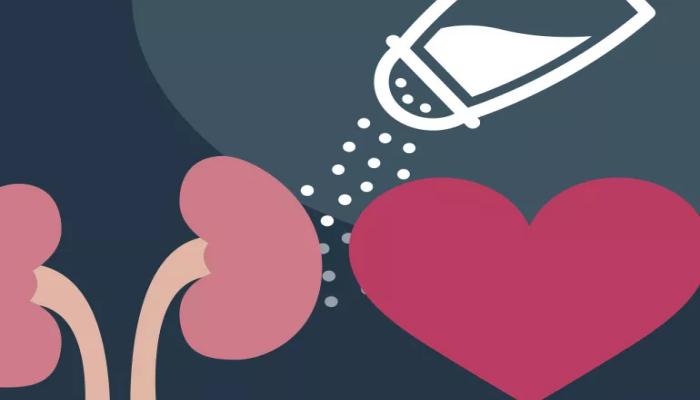High blood pressure, or hypertension, is a prevalent health issue affecting millions worldwide. It is a significant risk factor for cardiovascular diseases, including heart attacks and strokes. One of the primary dietary contributors to high blood pressure is sodium, commonly found in table salt. This article explores the types of salt available and identifies which may be best for individuals managing high blood pressure.
The Role of Sodium in Blood Pressure
Sodium plays a critical role in maintaining fluid balance in the body. However, excessive sodium intake can lead to water retention, increasing blood volume and consequently raising blood pressure. The American Heart Association recommends limiting sodium intake to no more than 2,300 milligrams per day, with an ideal limit of 1,500 milligrams for those with hypertension.
Types of Salt And Their Impact on Blood Pressure
When considering salt for high blood pressure, it’s essential to understand the different types available:
Table Salt: The most common type, primarily composed of sodium chloride. It often contains additives like anti-caking agents. High consumption can lead to increased blood pressure due to its sodium content.
Sea Salt: Derived from evaporated seawater, it contains trace minerals but is chemically similar to table salt. While it may offer slight nutritional benefits, its impact on blood pressure is comparable to that of table salt when consumed excessively.
Himalayan Pink Salt: Mined from ancient sea deposits, this salt contains trace minerals such as potassium and magnesium. Some proponents claim it may help regulate blood pressure better than regular salt; however, scientific evidence supporting this claim is limited.
SEE ALSO: What Is The Danger Zone for Diastolic Blood Pressure?
Kosher Salt: Known for its coarse texture and larger flakes, kosher salt is used primarily in cooking and food preparation.
Like other salts, it contains sodium chloride and should be consumed in moderation.
Potassium-Enriched Salt: This alternative replaces some sodium chloride with potassium chloride. It helps lower blood pressure by reducing sodium intake while increasing potassium intake, which is beneficial for heart health.
Potassium-Enriched Salt: A Viable Alternative
Potassium-enriched salt has gained attention for its potential benefits in managing high blood pressure. Studies have shown that switching to potassium-enriched salt can lower blood pressure significantly. A randomized trial involving over 20,000 participants demonstrated that this type of salt not only reduces sodium intake but also increases potassium levels, leading to better cardiovascular health outcomes.
Benefits of Potassium
Potassium is a vital mineral that helps regulate fluid balance and muscle contractions. It counteracts the effects of sodium by promoting the excretion of excess sodium through urine. This balance is crucial for maintaining healthy blood pressure levels. Insufficient potassium intake is another contributing factor to hypertension, making potassium-enriched salt an appealing option for those at risk.
Scientific Evidence Supporting Potassium-Enriched Salt
Research has consistently highlighted the benefits of potassium-enriched salt:
Lower Blood Pressure: A comprehensive review indicated that switching from regular salt to potassium-enriched salt could significantly reduce systolic and diastolic blood pressure levels.
Reduced Risk of Cardiovascular Events: Increased potassium intake has been associated with a lower risk of stroke and heart attacks, making it a valuable dietary change for individuals with hypertension.
Global Health Recommendations: The World Health Organization has recognized potassium-enriched salt as an affordable strategy to combat high blood pressure globally.
Considerations When Choosing Salt
While selecting the right type of salt can be beneficial, individuals managing high blood pressure should also consider these factors:
Moderation is Key: Regardless of the type of salt used, moderation remains crucial. Excessive consumption of any salt can lead to adverse health effects.
Focus on Overall Diet: A balanced diet rich in fruits, vegetables, whole grains, and lean proteins can support heart health and help manage blood pressure effectively.
Consult Healthcare Professionals: Individuals with specific health conditions, particularly those related to kidney function, should consult healthcare providers before making significant dietary changes involving salt consumption.
Conclusion
In conclusion, while traditional table salt poses risks for individuals with high blood pressure due to its sodium content, alternatives like potassium-enriched salt present a promising solution. By reducing sodium intake and increasing potassium levels through dietary changes, individuals can better manage their blood pressure and improve overall cardiovascular health.
Switching to potassium-enriched salt may not only enhance flavor without compromising health but also provide significant benefits in controlling hypertension. As always, embracing a holistic approach that includes dietary modifications and lifestyle changes will yield the best results in managing high blood pressure effectively.
Related topics:
- What Makes Your Blood Pressure High in Pregnancy?
- Does Water Help with Hypertension?
- What Causes High Diastolic Number?

